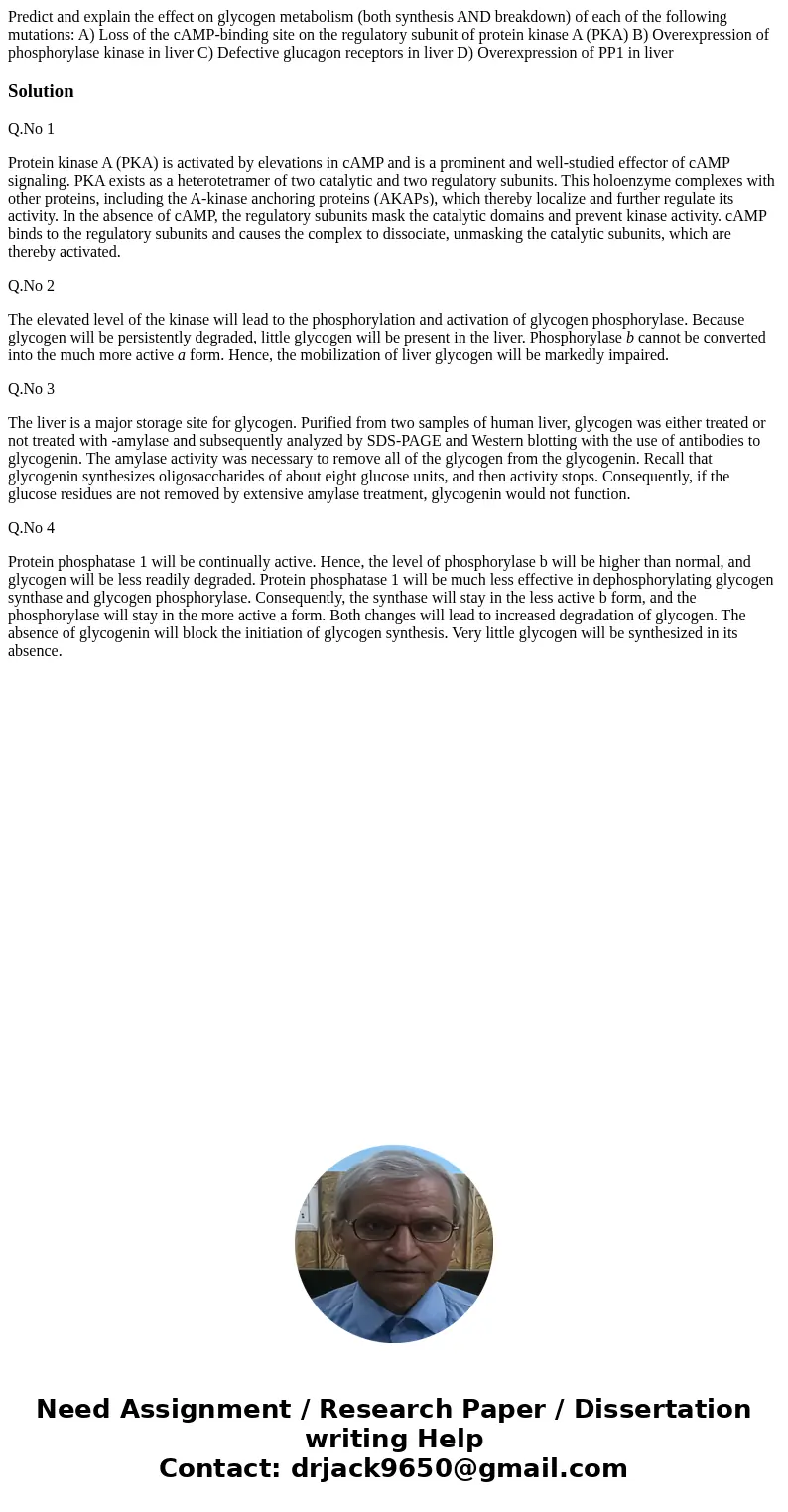Predict and explain the effect on glycogen metabolism both s
Solution
Q.No 1
Protein kinase A (PKA) is activated by elevations in cAMP and is a prominent and well-studied effector of cAMP signaling. PKA exists as a heterotetramer of two catalytic and two regulatory subunits. This holoenzyme complexes with other proteins, including the A-kinase anchoring proteins (AKAPs), which thereby localize and further regulate its activity. In the absence of cAMP, the regulatory subunits mask the catalytic domains and prevent kinase activity. cAMP binds to the regulatory subunits and causes the complex to dissociate, unmasking the catalytic subunits, which are thereby activated.
Q.No 2
The elevated level of the kinase will lead to the phosphorylation and activation of glycogen phosphorylase. Because glycogen will be persistently degraded, little glycogen will be present in the liver. Phosphorylase b cannot be converted into the much more active a form. Hence, the mobilization of liver glycogen will be markedly impaired.
Q.No 3
The liver is a major storage site for glycogen. Purified from two samples of human liver, glycogen was either treated or not treated with -amylase and subsequently analyzed by SDS-PAGE and Western blotting with the use of antibodies to glycogenin. The amylase activity was necessary to remove all of the glycogen from the glycogenin. Recall that glycogenin synthesizes oligosaccharides of about eight glucose units, and then activity stops. Consequently, if the glucose residues are not removed by extensive amylase treatment, glycogenin would not function.
Q.No 4
Protein phosphatase 1 will be continually active. Hence, the level of phosphorylase b will be higher than normal, and glycogen will be less readily degraded. Protein phosphatase 1 will be much less effective in dephosphorylating glycogen synthase and glycogen phosphorylase. Consequently, the synthase will stay in the less active b form, and the phosphorylase will stay in the more active a form. Both changes will lead to increased degradation of glycogen. The absence of glycogenin will block the initiation of glycogen synthesis. Very little glycogen will be synthesized in its absence.

 Homework Sourse
Homework Sourse